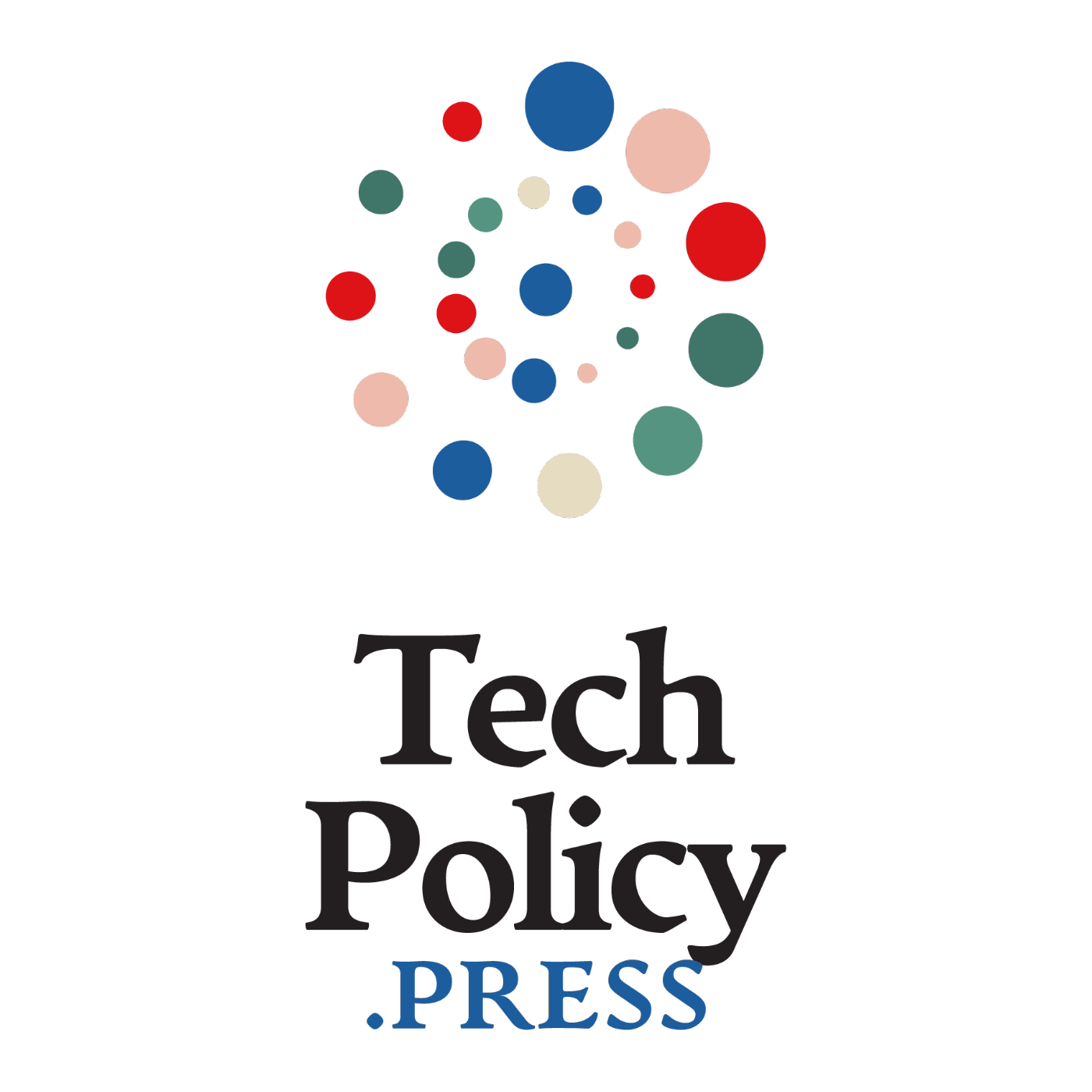

The Tech Policy Press Podcast
Tech Policy Press
Tech Policy Press is a nonprofit media and community venture intended to provoke new ideas, debate and discussion at the intersection of technology and democracy.
You can find us at https://techpolicy.press/, where you can join the newsletter.
You can find us at https://techpolicy.press/, where you can join the newsletter.
Episodes
Mentioned books

Aug 25, 2024 • 25min
A Conversation with Mark Surman, President of Mozilla
Justin Hendrix speaks with Mark Surman, President of Mozilla, about Mozilla’s work promoting open source AI, the importance of competition in the tech sector, and the regulatory challenges facing the industry. Surman discusses Mozilla's initiatives in AI investment and development, and reflects on what the recent ruling the Google search cases might mean for the future of Mozilla and the tech economy. And, Surman shares his hopes for the future- that we can arrive at a tech economy that is not purely extractive, but rather one that respects people’s values and dignity.

Aug 18, 2024 • 28min
Design Codes and the Courts
A recent ruling from the Ninth Circuit Court sheds light on the legal tussles surrounding California's Age-Appropriate Design Code Act. Discussions reveal tensions between child safety measures and First Amendment rights. Experts explore the complexities of tech regulations by comparing them to food safety laws. The podcast dives into how design choices impact children’s safety online and debates if regulations should be based on tangible harms or subjective experiences. It also highlights the evolving responsibilities of digital platforms in safeguarding users.

Aug 11, 2024 • 29min
New Mexico Attorney General Raúl Torrez on His Lawsuit Against Meta
Raúl Torrez, the 32nd Attorney General of New Mexico, is challenging Meta for allegedly failing to protect children from online dangers. He discusses the serious implications of social media on youth safety, citing troubling exploitation and predatory behavior. The conversation delves into the New Mexico Unfair Practices Act and the discrepancies between Meta's claims and their practices. Torrez emphasizes the importance of legal action in pushing for better online protections and the need for transparency from tech companies to enhance child safety.

17 snips
Aug 4, 2024 • 36min
Using AI to Engage People about Conspiracy Beliefs
David Rand, a professor at MIT with expertise in Management Science and Cognitive Sciences, dives into the fascinating intersection of AI and conspiracy beliefs. He discusses his research on how dialogues with AI can reduce belief in conspiracies, even showing long-lasting effects. Rand highlights how important personalized interactions are and addresses the ethical challenges of using AI in this context. The conversation also touches on connecting punk rock culture to misinformation and the nuances of discussing deeply held beliefs.

Jul 28, 2024 • 29min
Data Workers, In Their Own Words
Rebecca Rand, a journalist and audio producer, dives into the vital yet often overlooked world of data workers. She discusses the harsh realities these individuals face in content moderation and AI training, emphasizing the emotional toll of their work. Rand highlights the Data Workers' Inquiry initiative which empowers these workers to share their stories. The conversation sheds light on the need for recognition, mental health support, and advocates for a labor movement that challenges misconceptions about the data workforce.

9 snips
Jul 21, 2024 • 45min
The Future of Privacy in the Age of AI
Listen to a discussion with Jules Polonetsky and Anne J. Flanagan from Future of Privacy Forum on US privacy laws, GDPR, and the role of AI. Explore the impact of the Supreme Court decision, challenges lawmakers face, and the importance of data privacy in educational technology and AI. Learn about establishing AI-focused centers and advancing legal certainty in privacy-enhancing technologies.

Jul 21, 2024 • 45min
Silicon Valley Leaders Cast Their Lot with Donald Trump
In the past week, multiple Silicon Valley billionaires announced endorsements of former President and 2024 Republican nominee Donald Trump. To dig a bit deeper into their motivations to support Trump and his new running mate, Ohio Senator and former venture capitalist J.D. Vance, Justin Hendrix invited on three sharp observers of politics and technology, including:Henry Farrell, a professor of the international affairs and democracy at Johns Hopkins University and the recent co-author with Abraham Newman of Underground Empire: How America Weaponized the World Economy.Elizabeth Spiers, a writer and digital strategist and contributing writer for the New York Times, and co-host the Slate Money Podcast.Dave Karpf, an associate professor at George Washington University in the School of Media and Public Affairs.

5 snips
Jul 14, 2024 • 43min
Data Rights in the Age of AI
David Carroll and Ravi Naik discuss data protection in the age of AI, focusing on the aftermath of the Cambridge Analytica scandal and the challenges of AI-generated text. They explore the legal boundaries of AI, the role of advocacy in upholding data rights, and the importance of human involvement in AI projects.

Jul 14, 2024 • 58min
What Comes After Murthy v Missouri
Experts discuss the aftermath of Murthy v Missouri in relation to COVID-19 misinformation. Topics include free expression, tech policy, combating influence operations, NRA v. Volo case, conspiracy theories, political funding, countering influence operations on social media, challenges in civil service communication roles, and implications on platform accountability and transparency.

8 snips
Jul 7, 2024 • 54min
Considering the Ethics of AI Assistants
Experts discuss the ethical and societal risks of advanced AI assistants. Topics include anthropomorphism, appropriate relationships with AI, impact of AI on relationships, and ethical considerations in AI development.


